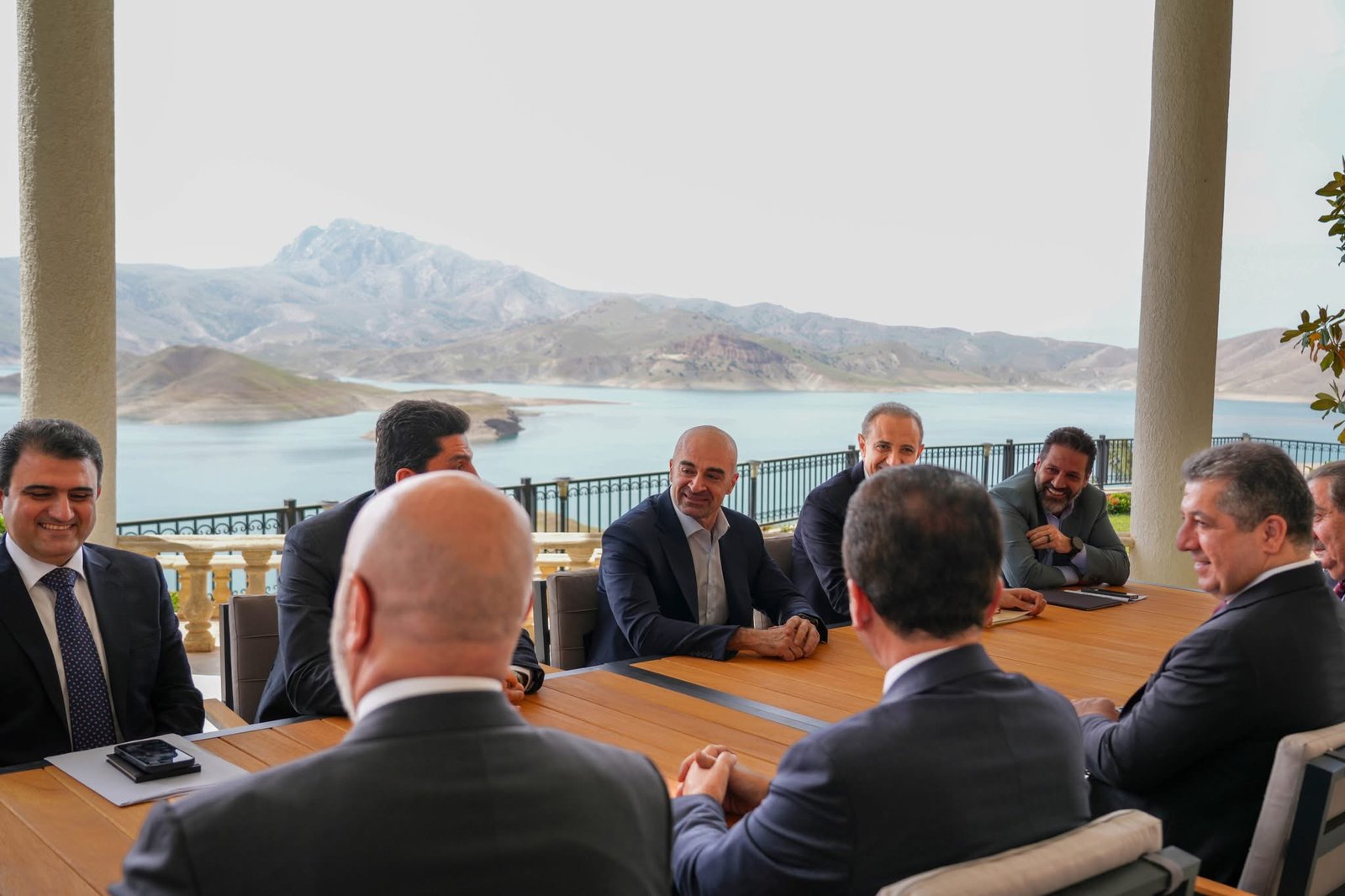Masrour Barzani and Bafel Talabani Meet to Advance KRG Cabinet Formation

KDP deputy president Masrour Barzani and PUK president Bafel Talabani met in Sulaimani to discuss ways to advance ongoing negotiations for the formation of the next Kurdistan Regional Government (KRG) cabinet. Although the Kurdistan parliamentary elections were held in October 2024, a new cabinet has yet to be formed.
Context: The meeting took place at Bafel Talabani’s headquarters in Sulaimani, with the negotiating teams of both parties in attendance, including Qubad Talabani for the PUK and Hoshyar Zebari for the KDP. This marks the third meeting between Masrour and Bafel since the elections, with the previous two held at Barzani’s headquarters near Erbil.
Analysis: More than six months after the regional elections, the parliament has only convened once, in January, and its session remains legally ambiguous. Under parliamentary rules, the first session cannot be closed until the speaker is elected—something that has yet to happen—leaving the assembly technically in its inaugural sitting.
Since then, the KDP and PUK, which emerged as the two largest blocs in the new parliament but without an outright majority, have engaged in slow and often difficult negotiations to form a new cabinet. The two sides claim to have finalized a draft outlining the governing principles for the new cabinet, but talks over the distribution of ministerial posts are ongoing.
PUK’s Proposal for KRG Strategic Ministries Distribution
- PUK demands 3 of 6 strategic ministries for a balanced distribution
- KDP’s positions reflect Barzani family dynamics (Nechirvan vs. Masrour)
- Masrour Barzani wants both Security Council Advisor and Interior Ministry
- Cabinet formation unlikely in near term due to these differences
- PUK is exploiting intra-Barzani rivalry by proposing that if they don’t get the Security Council Advisor role, it should return to the presidency’s authority (Nechirvan) rather than remaining under the prime minister’s office (Masrour)
- The Security Council was originally created for Masrour when his father was president, but since 2019 Masrour shifted its authority to the prime minister’s office
Despite some progress, significant gaps remain between the parties, and the formation of a new cabinet still appears unlikely in the near term. The PUK is demanding a more balanced distribution of key ministries, seeking control over three of the six so-called "strategic ministries." According to reports, these ministries are: the Kurdistan Region Security Council Advisor, and the Ministries of Interior, Natural Resources, Finance, Planning, and Peshmerga.
The PUK reportedly proposes that the sovereign ministries be distributed based on a reciprocal logic: if the Security Council Advisor post is allocated to the KDP, then the Ministry of Interior should go to the PUK, and vice versa. Similarly, if the Ministry of Finance is given to the KDP, the Ministry of Natural Resources should be awarded to the PUK, and if the Ministry of Planning is assigned to the KDP, the Ministry of Peshmerga should go to the PUK as well as a point-based distribution of the other ministries based on the seats in parliament.
Meanwhile, the KDP insists on retaining both the prime ministership and the presidency, reflecting internal dynamics within the Barzani family between cousins Nechirvan and Masrour Barzani, who both serve as deputy presidents of the KDP. Moreover, some reports suggest that Masrour Barzani is also pressing for the KDP to control both the Security Council Advisor position and the Ministry of Interior, arguing that these roles must work closely with the prime minister's office.
However, one report indicates that the PUK might be deliberately trying to exploit this intra-Barzani rivalry. According to the report, the PUK has proposed that if it is not granted the Security Council Advisor position, the post should be restored to its original legal status, under the authority of the Kurdistan Presidency. The position was originally created for Masrour Barzani and was initially linked to the presidency because his father, Masoud Barzani, was serving as president at the time. However, since 2019—when Masrour Barzani became prime minister and Nechirvan Barzani became president—Masrour quietly shifted the Security Council’s authority to the prime minister’s office and has de facto controlled the council ever since.









